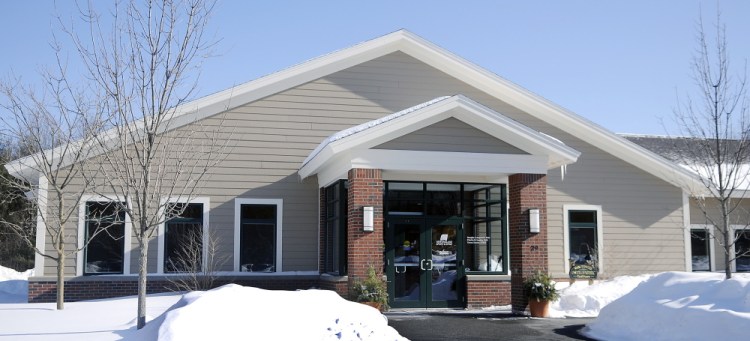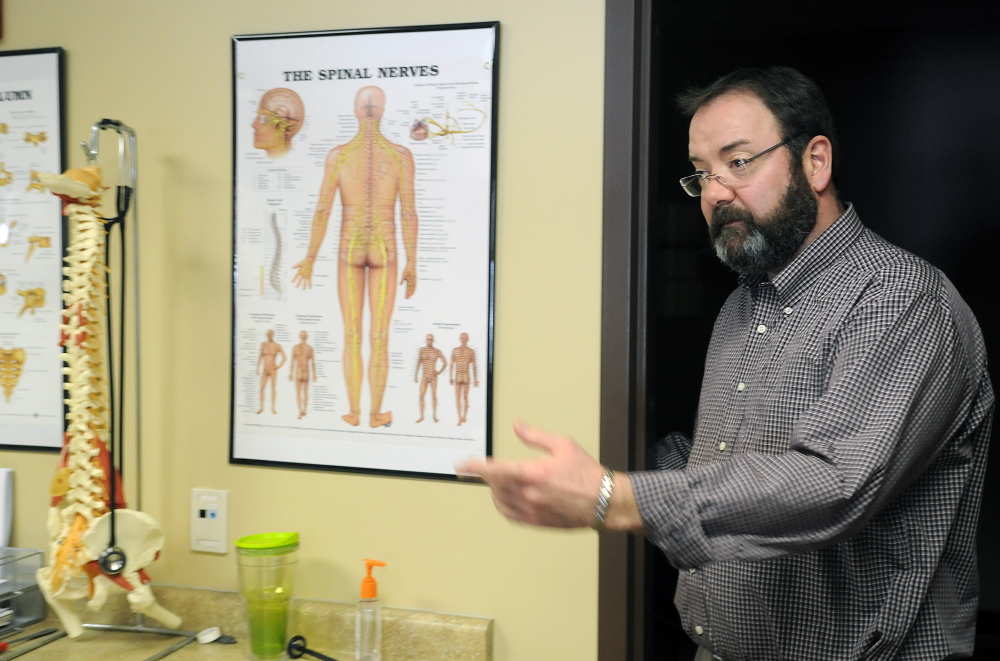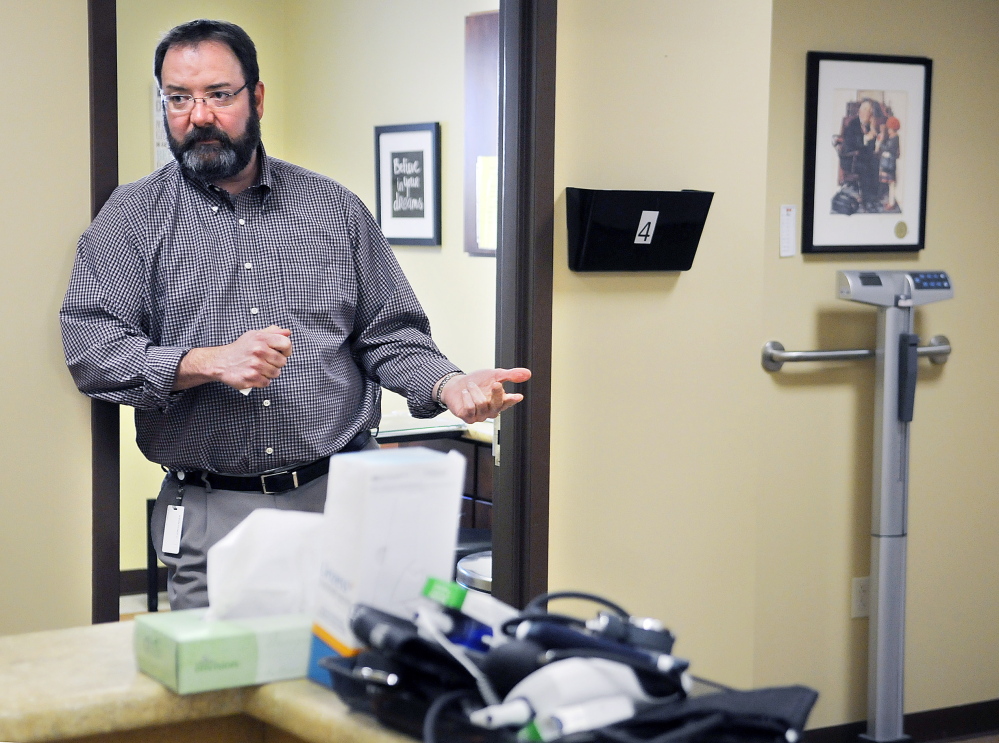MANCHESTER — An addiction recovery center where people addicted to alcohol, heroin, cocaine, opioids or other substances has taken the space of a former family practice at a medical building on U.S. Route 202.
The practice provides what Dr. Douglas Jorgensen described as state of the art treatments including Vivitrol, or naltrexone, an injectable prescription medicine used to reduce cravings for alcohol and drugs. Naltrexone is injected into patients at the center. Prescriptions for Suboxone Film, a treatment meant to reduce cravings of opioids such as oxycodone and pain pills, are also given out at the center. Patients fill their Suboxone prescriptions elsewhere, as the substance is not kept at the center.
Jorgensen, one of three doctors in the practice, said the Maine Recovery Center will be able to take up to 300 patients, and he expects those slots to fill up quickly because of the number of addicts in the area. Physicians are limited by law to 100 patients, though Jorgensen hopes to obtain a federal waiver to allow doctors to see more patients because of the demand for recovery help in Maine.
“We opened this up because we felt there was a need not being addressed,” Jorgensen said.
He noted the maximum of 300 patients they can take in the recovery center is a small number of people compared to the roughly 6,000 people who are patients at the medical building, which also houses Manchester Osteopathic Healthcare, New England Sport and Spine, and Northern New England Diagnostics.
He said the enterprise, which so far has about 100 patients, has not faced opposition but also said many in the community likely don’t know it exists.
“These people are part of our community and deserve to be treated like anyone else with a medical condition,” Jorgensen said. “You wouldn’t make it difficult for a diabetic to be treated.”
Town Manager Patrick Gilbert said he had not heard of the Maine Recovery Center, and Paul Mitnik, the town’s code enforcement officer, was not available Monday to comment on what, if any approvals the operation needed from the town.
Jorgensen said the program is “hyper-vigilant” about following all protocols to prevent abuse of the medication it prescribes to help people quit their addictions, including testing urine from patients to see if they are taking their medication and not taking illegal drugs. Some patients are weened off their medications, he said, while others may continue to receive weekly or monthly doses indefinitely.
“Our focus is on recovery, not addiction,” Jorgensen said. “Functionality in day-to-day life is our goal.”
He said many addicts have full-time jobs and don’t look like the stereotype of a drug addict.
Jorgensen, a longtime specialist in treating pain, said the Maine Recovery Center helps patients manage both pain and addiction. Some patients, he noted, became addicted to drugs by first using them for pain treatment.
Jorgensen said addiction specialists at the recovery center work with mental health professionals to make sure their patients receive the right combination of treatment methods to aid in their recovery. He said counseling services may be offered on-site in the future.
He said it is the only privately owned and operated practice of its kind in central Maine.
It will not dispense methadone, another medication used to treat addicts of some drugs.
The Maine Recovery Center plans to open a second location on Main Street in South Portland with Dr. John Stedman in March.
Keith Edwards — 621-5647
kedwards@centralmaine.com
Twitter: @kedwardskj
Send questions/comments to the editors.






Comments are no longer available on this story